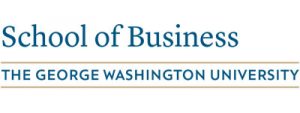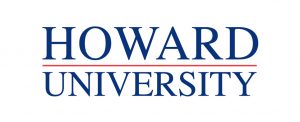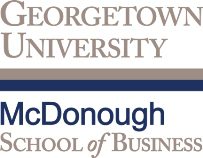Entrepreneurship MBAs in Washington D.C.

The D.C. beltway’s high-stakes mix of government, tech and social services makes the metro fertile ground for ambitious entrepreneurs looking to launch the next unicorn startup. Inc. reports it’s the 4th most desirable city for startups behind New York, San Francisco and Oakland.
With high capital gain rates, mayor Vincent Gray’s Tech & Innovation Sector-sanctioned tax credits, and a booming tech sector—WAMU says the city hosts over 1,000 startups—opportunities for innovation abound in our nation’s capital.
This is precisely why you budding small business owners need to get in on the ground floor, especially if you’re considering b-school in the American Rome. Here are four MBA programs in the DC metro with entrepreneurs in mind.

George Washington University School of Business
The MBA at GWU offers an entrepreneurship concentration that trains students to “examine the motivations, reasons and methods involved in becoming a social entrepreneur [by] addressing social problems and advancing peace through free-market enterprise.”
The Entrepreneurship MBA at GWU enables graduates to assess the global environment and impact of business; demonstrate responsible leadership; think critically; work effectively in teams and communicate effectively.

Howard University School of Business
Howard’s entrepreneurship MBA concentration “prepares graduates to enter the global economy as effective leaders, planners and managers” by allowing students to “develop a solid knowledge and analytical competence.” The required coursework for the entrepreneurship MBA covers “creativity and innovation, feasibility analysis, venture finance and business plan development.”
The core curriculum introduces budding entrepreneurs to market strategies that explore “ways to analyze and define the target market, evaluate competition, identify environmental trends and determine customer preference.” Additional coursework helps students understand and explore “the requirements, costs, and benefits of the various forms of financing options available to the entrepreneur,” as well as “strategic planning for successful market entry.”

George Mason University School of Business
George Mason’s Center for Innovation & Entrepreneurship “serves as a bridge, working tirelessly to prepare students to be innovators and problem solvers.” The center consists of graduate and undergraduate students, alumni, faculty and staff and a host of public, private and nonprofit organizations. This community, which spans the greater D.C. metro/northern Virginia area provides “experiential learning through academic programs, research and extensive extra-curricular programming for Mason students and alumni interested in innovation, entrepreneurship and value creation.”

Georgetown University McDonough School of Business
Georgetown-McDonough’s MBA program encompasses the Startup Hoyas Entrepreneurship Initiative, a professional club that offers a smorgasbord of “academic, extracurricular, and off-campus programs, and connect our students to accomplished alumni, industry experts, entrepreneurs and business executives.” Founded by Jeff Reid, the mission of Startup Hoyas is to “inspire, teach, connect and launch.”
Startup Hoyas has developed a reputation in the DC startup community for attracting noteworthy guest lecturers as part of its Entrepreneurs-in-Residence. The club also regularly hosts workshops, “networking opportunities, and educational events.” Moreover, Startup Hoyas facilitates “a wide variety of entrepreneurship activities” through a number of innovative programs.
The two-year InSITE Fellowship connects top-performing graduate students with “high-potential emerging companies in a variety of industries, ranging from software and hardware, healthcare and life sciences and cleantech, to enterprise services, education, consumer goods, entertainment + media, social ventures and financial services.” InSITE fellows “meet with founders and company leaders, identify key challenges and opportunities, set deliverables, and complete semester-long consulting projects that contribute to real growth.”
The one-year Venture Fellows Program gives students an opportunity to apprentice in a V.C. or private equity firm for ten hours per week during winter term, summer break and the fall semester. Venture Fellows will assist with “tasks such as due diligence, deal sourcing and assisting portfolio companies.”
The Venture Capital Investment Competition (VCIC) trains “future venture funders and aspiring entrepreneurs,” and functions “as a marketplace for live entrepreneurs seeking investment.” The idea is that student entrepreneurs have an opportunity to pitch to students playing the role of VCs with real life VCs overseeing the competition.
The two-month StartupHoyas Summer Launch Program is designed to incubate Georgetown student startups. Selected students will receive “dedicated support from Georgetown faculty, mentors and other experienced entrepreneurs, work space on the main Georgetown campus, introductions to local investors and entrepreneurs, invitations to exclusive networking events, and the opportunity to present your ideas to the DC entrepreneurship community.”
Each fall, Georgetown organizes a 54-hour Startup Weekend in which students “pitch ideas for new startup companies, form teams around those ideas, and work to develop a working prototype, demo or presentation by Sunday evening.”
